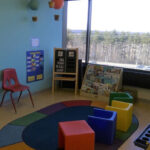5 Sensory-Friendly Activities in Menifee, CA, for Kids on the Autism Spectrum
FEATURED POSTS
February 16, 2026
For families with children on the autism spectrum, visiting public places can occasionally present unique challenges. Bright lights, loud sounds, and crowded areas may become overwhelming for some children, sometimes making outings feel harder to plan.
This is where sensory-friendly spaces can make a real difference. These environments often feature adjustments such as dimmed lighting, reduced noise levels, and fewer people, all aimed at creating a more comfortable and supportive setting.
For many families, these spaces provide opportunities for children to enjoy stimulating activities, discover new interests, and connect with the world in a way that suits their needs. They also allow families to spend meaningful time together and build positive experiences.
In Menifee, here are five sensory-friendly activities to consider in the area.
1. Go to a Movie at Reading Cinemas at Cal Oaks Plaza
Reading Cinemas offers sensory-friendly movie showings on select Saturday mornings. During these screenings, the lights are dimmed instead of dark, and sound levels are reduced. Kids are encouraged to move around and enjoy the film at their own pace.
Tip for Families: Check their events calendar to confirm showtimes and plan your visit early to get the best seats.
2. Check Out Menifee Library’s Sensory-Friendly Storytime
Menifee’s library hosts sensory-friendly storytime sessions designed for neurodiverse kids. The sessions include calming activities such as soothing stories, sensory play, and low-stimulation settings. Kids can also enjoy quiet reading nooks.
Tip for Families: Call ahead to learn about dates and the library’s other sensory-sensitive programs.
3. Head to a City Park with a Quiet Outdoor Space
For fresh air and nature, Menifee’s city parks offer calm spots where kids can play and explore. Central Park, with its open spaces and shaded picnic areas, is a great choice for kids who benefit from low-key environments. It also has walking trails for peaceful family strolls.
Tip for Families: Visit in the morning or evening to avoid larger crowds and bring noise-canceling headphones for added comfort.
4. Visit Drop Zone Waterpark’s Special Quiet Days
Drop Zone Waterpark in Perris, located just outside Menifee, offers special “quiet days” throughout the year. On these days, the park reduces loud music and lowers the pressure of spray features for a more sensory-friendly atmosphere. Families can enjoy water play in an inclusive and less stimulating setting.
Tip for Families: Check Drop Zone Waterpark’s calendar for scheduled quiet days. Consider packing sensory tools like sunglasses or noise-canceling headphones to make the experience even more enjoyable.
5. Appreciate Nature at Aldergate Dog Park
Even if you don’t have a dog, Aldergate Dog Park is a great spot to enjoy quiet outdoor time. This park offers a spacious and enclosed area where kids can walk, explore, and watch the dogs play. With its open layout and friendly vibe, it’s an underused, peaceful location ideal for sensory-sensitive children.
Tip for Families: Visit early in the day for a quieter experience and bring along snacks, water, or sensory comfort items for your child.
Check out our LEARN Behavioral blog on 5 simple play ideas for more sensory-friendly ideas.
Looking for additional support for your child in Menifee, CA? At AST, we use science and data to deliver contemporary applied behavior analysis (ABA) therapy, tailored exclusively to your child’s unique needs, behavior, and personality. Learn more about our services in the Menifee area and contact us today!







